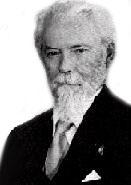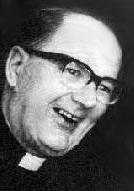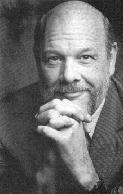
|
"For the general reader, Creamer presents a remarkably readable
essay on each of the three thinkers. . . . Having struggled through a great
deal of Lonergan's writings, I found Creamer's digest of Insight and Method
in Theology breathtaking in its clarity."
"In Guides for the Journey David Creamer has produced a rare book
in its clarity and its passion. It is rare in that it provides the general
reader and
introductory student with excellent briefings on the three scholars
presented while at the same time proposing a deeply felt synthesis which
engages the more sophisticated reader."
[Excerpts from a review of Guides for the Journey by Brian
Ruttan (Professor of Divinity, Trinity College, University of Toronto)
in University of Toronto Quarterly (Vol. 67, No. 1, Winter 1997-98), pp.
275-76.] |

 John
Macmurray (1891-1976) is a deep but clear and original twentieth century
philosopher of ethics and religion. He has been called "the best-kept secret
of British philosophy in the twentieth century." Because of a renewed interest
in his thought, five of his most important works (he wrote fifteen books
and countless articles) were reissued by Humanities Press International
between 1991 and 1993 (Conditions of Freedom, Freedom in the Modern World,
Persons in Relation, Reason and Emotion, and The Self as Agent).
John
Macmurray (1891-1976) is a deep but clear and original twentieth century
philosopher of ethics and religion. He has been called "the best-kept secret
of British philosophy in the twentieth century." Because of a renewed interest
in his thought, five of his most important works (he wrote fifteen books
and countless articles) were reissued by Humanities Press International
between 1991 and 1993 (Conditions of Freedom, Freedom in the Modern World,
Persons in Relation, Reason and Emotion, and The Self as Agent).

 James
Fowler (1940 - ) and associates have done the ground breaking work on the
application of developmental psychology to an understanding of "faith"
(meaning-making) as developing. I first met Jim Fowler in 1976 and have
been interested in his work ever since. Harper & Row published his
first book, Stages of Faith: The Psychology of Human Development and the
Quest for Meaning, in 1981. His most recent work is Weaving the New Creation:
Stages of Faith and the Public Church (Harper Collins, 1991).
James
Fowler (1940 - ) and associates have done the ground breaking work on the
application of developmental psychology to an understanding of "faith"
(meaning-making) as developing. I first met Jim Fowler in 1976 and have
been interested in his work ever since. Harper & Row published his
first book, Stages of Faith: The Psychology of Human Development and the
Quest for Meaning, in 1981. His most recent work is Weaving the New Creation:
Stages of Faith and the Public Church (Harper Collins, 1991).